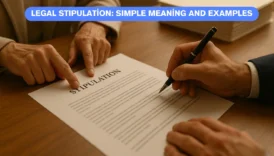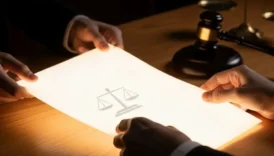What Does Perjury Mean in Court?

Perjury is a serious term you may hear in movies or real court cases, but many people aren’t sure exactly what it means. This article explains perjury in plain English, with practical examples, its importance, and key points for anyone interested in law.
Simple Definition
Perjury means lying under oath in court or in a legal proceeding. If a person promises to tell the truth and then knowingly gives false information, they have committed perjury.
Real-Life Examples
- Witness Statement: During a trial, a witness swears to tell the truth but lies about seeing the defendant at the scene of a crime.
- False Affidavit: Someone signs a written statement for a court case, knowing the information is false.
- Financial Disclosure: In a divorce case, a person lies about their income while testifying under oath.
Why Is Perjury Important?
Perjury is a crime because courts rely on honest testimony to make fair decisions. When someone lies under oath, it can lead to wrongful convictions, unfair outcomes, and damages the integrity of the legal system. That’s why perjury is punishable by fines or jail time.
Comparison: Perjury vs. False Accusation
Perjury is lying under oath—intentionally giving false testimony during a legal proceeding. A false accusation, on the other hand, is when someone wrongfully claims another person committed a crime. Both are harmful, but perjury is specifically about dishonesty while sworn to tell the truth in court.
Frequently Asked Questions
1. What happens if you commit perjury?
You can face criminal charges, including fines or imprisonment.
2. Is perjury only about spoken lies?
No. Written statements made under oath, like affidavits, also count.
3. Can perjury charges be dropped?
Sometimes, if it was an honest mistake or if the falsehood was corrected quickly.
4. Who decides if something is perjury?
A judge or jury will decide, based on the evidence.
5. Why is perjury punished so severely?
Because it threatens the fairness and trustworthiness of the entire legal system.
Closing Thoughts
Perjury undermines justice. If you’re ever involved in a legal case, always be truthful—lying under oath can have serious consequences for everyone involved.






